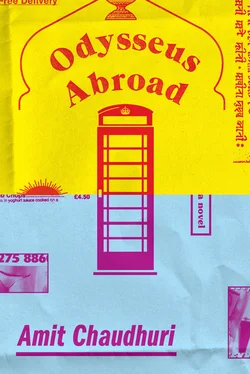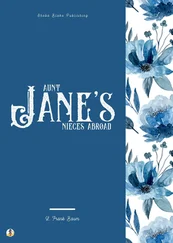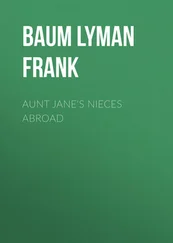“I sleep poorly myself,” pointed out Ananda as they awaited the bill. “Could it mean I’m from another planet?”
“Whatever you do,” said his uncle firmly, “don’t drink milk before you go to bed because people have told you that it’s a cure for insomnia. You’ll feel bloated. We had an aunt who had a fixation about milk — as a result my growing up and even my youth was a purgatory. I gave up milk a few years after coming to London. Since then my life has been a life of freedom.”
—
A moment later, staring out of the window, distracted, he said, “Pupu, mone chhata pore achhe.” Ananda hadn’t ever heard anyone else use this expression. It was something you’d expect an old village woman to say. Literally, it meant, “There’s a covering of moss on my heart.” He was vaguely sad — why, on this bright day, it was hard to tell. He never owned up to homesickness — though he’d lived in 24 Belsize Park for twenty-six years now. He said he was happy; his only cause of distress his rejection of the directorship. When Ananda complained of missing home, he showed little sympathy. Yet, sometimes during a walk, or in the middle of a walk, he’d say: “Mone chhata pore achhe.”
“Why, what’s the matter?” Did his mother leaving last week have anything to do with it? “Ma was asking after you yesterday.”
“Tell her not to spend your father’s money on long-distance calls. She lives on some other plane, your mother. Thinks she’s Queen Elizabeth!” Still resentful she wasn’t hanging around for him. Khuku, the sidekick; envying her her posh married life in Bombay. And maybe missing her?
Ananda bristled. Yet he held back from leaping into the fray. On one of his mother’s recent visits, when she’d come to London to allay Ananda’s restiveness, Rangamama had attacked her physically, rudely yanking her hair when she’d dared to defend the older brother in Shillong whom Ananda’s uncle was sounding off about for repeatedly demanding money from him. Instinctively, Ananda had shoved him, and, to his surprise, sent him reeling, realising how lightly built his uncle was, a wisp of a man.
“Calls herself an artist!” he continued, undaunted. He was now taunting her for what he perceived to be her hubris as a singer. All her childhood she’d been enshrined within her family for her singing voice. Ten days ago, she’d excused her inability to understand complex financial arrangements by saying (not without levity) to the world — actually, to the room in Warren Street — that after all she was an “artist.” “Artist!” said his uncle. “She doesn’t know what an arse is, let alone art!”
“She is an artist,” insisted Ananda. “Her voice is amazing. It’s your family’s fault — not sending her to Santiniketan — or to college for that matter. Disgraceful!”
“You’re right,” conceded his uncle. “That was a bad mistake. The family was completely out of money at the time. But if I had been responsible, she’d have finished her education.” Pronounced grandiosely, but with passion. “And Satish married her because of me . I extracted that promise from him.”
“And it’s because of her ,” said Ananda, “that you two good-for-nothings are where you are today — one a managing director and the other a would-be director with a giant-size pension. Because she worked in the naval department at Aldwych while you two ate her cooking and sat your exams.”
“Rubbish — that’s not true.” A transient malevolent smile passed over his face. Was he toying with him?
“Did you not,” persisted Ananda, “live off her earnings in 24 Belsize Park?”
A swift assessment of evidence. Penitently he replied: “I’ve never denied it. I’ve never denied what she did for me. Or that I am what I am because of her.”
“There you are! Thank you!” A piece of paper on a plate, so precarious it might blow away any second. The waitress had vanished almost as soon as she’d placed it on the table.
“Wait, let me get this.” He lifted a restraining palm. From the inside breast pocket he took out, with grace and regret, a carefully tucked-in wad of pound notes. He plucked a five-pound note from the inner whorl and laid it on the plate. Ananda almost felt sorry for him, so immersed he was, so alone too, and clearly had been. Ananda was beholden. He couldn’t have afforded this tea shop. It was “dear”; the bill had come to three pounds ten. “How much?” he asked. “Nothing,” his uncle said mysteriously, as if he were hiding an embarrassing sexual secret from an innocent — but Ananda had bent forward and read the scrawled figure. The waitress turned up again by magic; “Thank you!”—now she’d borne the plate with the five-pound note aloft. His uncle had given her a dazzling smile, as if she were an angel they’d been lucky to have watch over them. He displayed the gap where his front incisor was until a year ago. Dental work was too costly in Britain. He’d go to India and get it fixed. It was a plan. Till then, he’d brandish the gap.
He’d lost the tooth in an idiotic episode. He was returning late on one of his nocturnal sojourns, via a lonely stretch on Chalk Farm, when he’d had the core of a recently consumed apple flung at him by a skinhead who was sitting on a low wall with two friends. As a rule, his uncle avoided making eye-contact with skinheads, because it was unsettling to look at a visage that had no facial hair. Like looking at a face that was all eye: a giant angry eye. But something possessed his uncle to go to the one who’d thrown the core and say: “Why did you do that?” It was well past the heyday of skinheads, so this one merely punched him, rather than kill him, as he would have when the National Front was in season. Somewhere in Chalk Farm, a mile and a half from where they were now, his uncle had lost a tooth.
—
The change, back on the table — a squat pound coin and nine pieces of what could have been silver. “Sorry for the wait! Thank you!” The endless metronome-like swing between apologies and expressions of gratitude. In the song, “In a daily dance / in my consciousness / who dances / ta ta thai thai,” the dancer’s arc moved from infinity on the one foot to finitude on the other; from bereavement to laughter. Here, in London, Sorrys and Thank yous covered the day in the same dance, in an ever-repeating back-and-forth.
“How much should we leave her?” Ananda’s uncle’s face was grim. Tipping was occasion for exaggerated theatre.
“Thirty — maybe forty at most.”
“Should I leave a pound? A pound would look nice. She has been friendly.”
“A pound!” Ananda was exasperated by his uncle’s indiscriminate sense of justice. What made him moan non-stop about sending cheques to his brother in Shillong, but be so cavalier with his money to a stranger? “You can’t possibly leave a pound!”
“She must be quite poor,” substituting the fact that he had no basis for the statement with an annoying look of maternal compassion — as if he were speaking of some down-at-heel cousin or beggar-maid he’d known in his childhood.
“ Thank you sir!” said the waitress when she spotted her reward, a bit shocked. She probably felt she’d taken advantage of this poor demented man, clearly unfamiliar with English currency.
He ducked his head. “It was a jolly good tea, you know!” he lied.
They emerged from the hut-like space. These rural log-cabins were expensive; the tea shops with modern furniture and fittings were common: the paradox of Hampstead. Except there were no common tea shops here.
Well?”
“What?”
“Bus or tube?”
A dilemma on the pavement before the tea shop. They contemplated the bus stop at South End Green. Not because they intended to go somewhere — but simply because, as his uncle had once said, “You can see more from a bus.” A couple of months ago, he, his uncle, and his mother had got on to a bus destined to travel in an exploratory circle and bring them back to where they’d begun, the South End Green terminus. It had been a week of frayed nerves; Ananda was struggling with Paradise Lost and Milton justifying the ways of God to men as, above him, the Patels erupted without warning into movement and rap music. But the bus ride had lifted them, literally (since they decided to sit on the upper deck). They’d floated — if not over London, then over its streets, encountering, at eye-level, a succession of treetops and half-open first-storey windows. When Ananda had remarked, taking in the illuminated residential vistas, “I’ll need to get back to the Milton essay tonight — exams start in three weeks,” his uncle, with a scandalised gasp (from the horror of past exams taken and half-remembered), said, “You’re lucky to be calm. When there’s work before me, I can never take pleasure in things till it’s out of the way.” Of course, his uncle had no work before him — he’d presumably need to invent some to feel again the true sensation of pleasure.
Читать дальше











